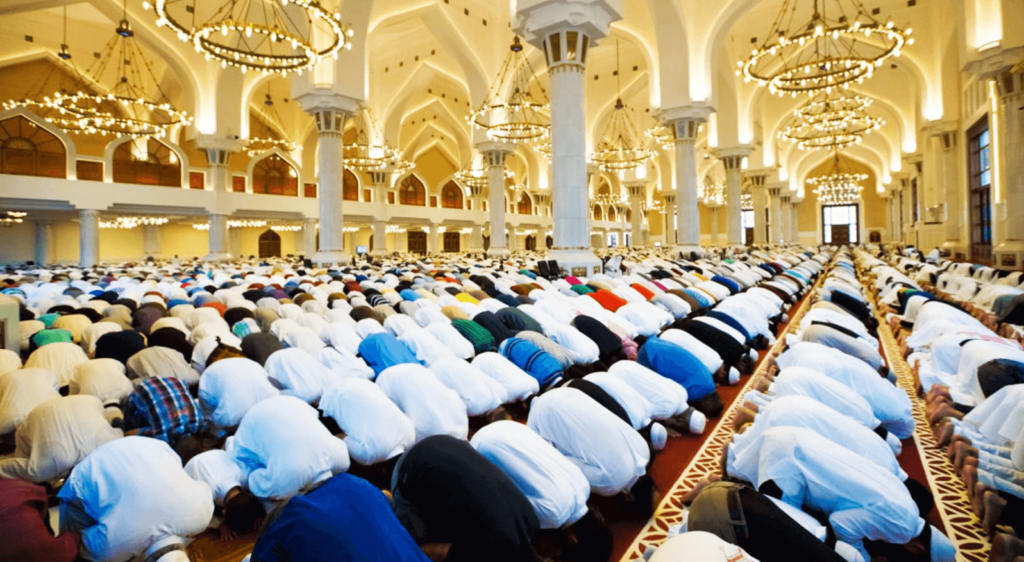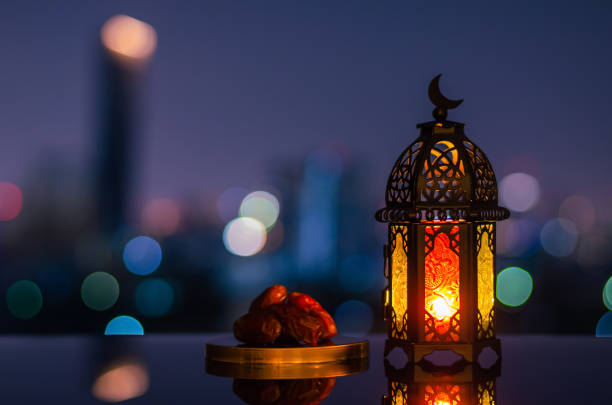As the crescent moon marks the end of Ramadan, Muslims around the world prepare to celebrate Eid ul-Fitr, a festival brimming with joy, gratitude, and community spirit. But have you ever wondered, “How do Muslims celebrate Eid after Ramadan fasting?” Fear not! In this comprehensive guide, we’ll unveil the vibrant traditions and customs that adorn this auspicious occasion, from the crack of dawn to the twinkling stars of the night.
The Morning of Eid: A Joyous Commencement

As the sun peeks over the horizon, signaling the dawn of Eid, Muslims eagerly embark on a day filled with prayers, festivities, and heartfelt reunions.
Preparing for the Day:
- Greeting the Day: Muslims begin by waking up before dawn to engage in Tahajjud prayers, seeking blessings and forgiveness from the Almighty.
- Dressing Up: Donning their finest attire, individuals adorn themselves in traditional garments, symbolizing renewal and spiritual elevation.
- Exchanging Greetings: “Eid Mubarak!” echoes through the air as friends and family exchange warm wishes, spreading cheer and goodwill.
The Eid Prayer:
- Gathering at the Mosque: Communities assemble at mosques or open spaces to perform the special Eid prayer, known as Salat al-Eid.
- The Sermon: Following the prayer, a sermon is delivered, emphasizing the significance of gratitude, compassion, and unity in the Islamic faith.
Feasting and Festivities: A Culinary Extravaganza

After the spiritual fulfillment of prayers, Muslims indulge in delectable feasts and partake in joyful celebrations, marking the essence of Eid ul-Fitr.
Delightful Delicacies:
- Sweet Beginnings: Eid commences with a hearty breakfast, typically starting with dates and water, following the tradition of Prophet Muhammad.
- Savoring the Sweets: Mouthwatering desserts like Baklava, Kunafa, and Sheer Khurma grace the tables, tantalizing taste buds with their rich flavors.
- Feast Fit for Royalty: Lavish spreads featuring aromatic biryanis, succulent kebabs, and flavorful curries take center stage, symbolizing abundance and generosity.
Joyous Gatherings:
- Family Reunions: Eid is synonymous with familial bonds, as loved ones come together to share laughter, stories, and cherished moments.
- Community Spirit: Beyond familial ties, Muslims extend hospitality to neighbors, friends, and even strangers, fostering a sense of unity and camaraderie.
Acts of Charity and Generosity: Spreading Blessings

Eid ul-Fitr serves as a poignant reminder of the importance of compassion and philanthropy, as Muslims engage in acts of charity to uplift the less fortunate.
Zakat al-Fitr:
- Obligatory Almsgiving: Muslims partake in Zakat al-Fitr, a form of charity given to the needy before the Eid prayer, ensuring everyone can join in the festivities without hardship.
- Empowering the Vulnerable: From distributing food packages to providing financial assistance, communities strive to alleviate the burdens of poverty and deprivation.
FAQs: Unraveling Common Queries
Curious minds often ponder various aspects of Eid celebrations. Here are some frequently asked questions to shed light on the festivities!
1. Why is Eid ul-Fitr Celebrated?
Eid ul-Fitr commemorates the culmination of Ramadan, the holy month of fasting, and signifies gratitude to Allah for granting strength and resilience during the period of spiritual devotion.
2. What Does “Eid Mubarak” Mean?
“Eid Mubarak” translates to “Blessed Eid” and is a common greeting exchanged among Muslims during Eid festivities, wishing each other joy, peace, and prosperity.
3. How Long Does Eid ul-Fitr Last?
Eid ul-Fitr typically lasts for one to three days, varying based on cultural traditions and regional practices across different Muslim-majority countries.
4. Can Non-Muslims Join in Eid Celebrations?
Absolutely! Eid celebrations embrace the spirit of inclusivity and welcome people of all faiths and backgrounds to partake in the festivities, fostering interfaith harmony and mutual respect.
Conclusion: Embracing the Spirit of Eid
From the crack of dawn to the twinkling stars of the night, Eid ul-Fitr encapsulates the essence of gratitude, compassion, and community spirit. By unraveling the vibrant traditions and customs, we’ve delved into the heart of how Muslims celebrate Eid after Ramadan fasting. So, the next time you witness the joyous fervor of Eid, remember the profound significance it holds for millions worldwide, uniting hearts in faith and celebration! Eid Mubarak to all!


